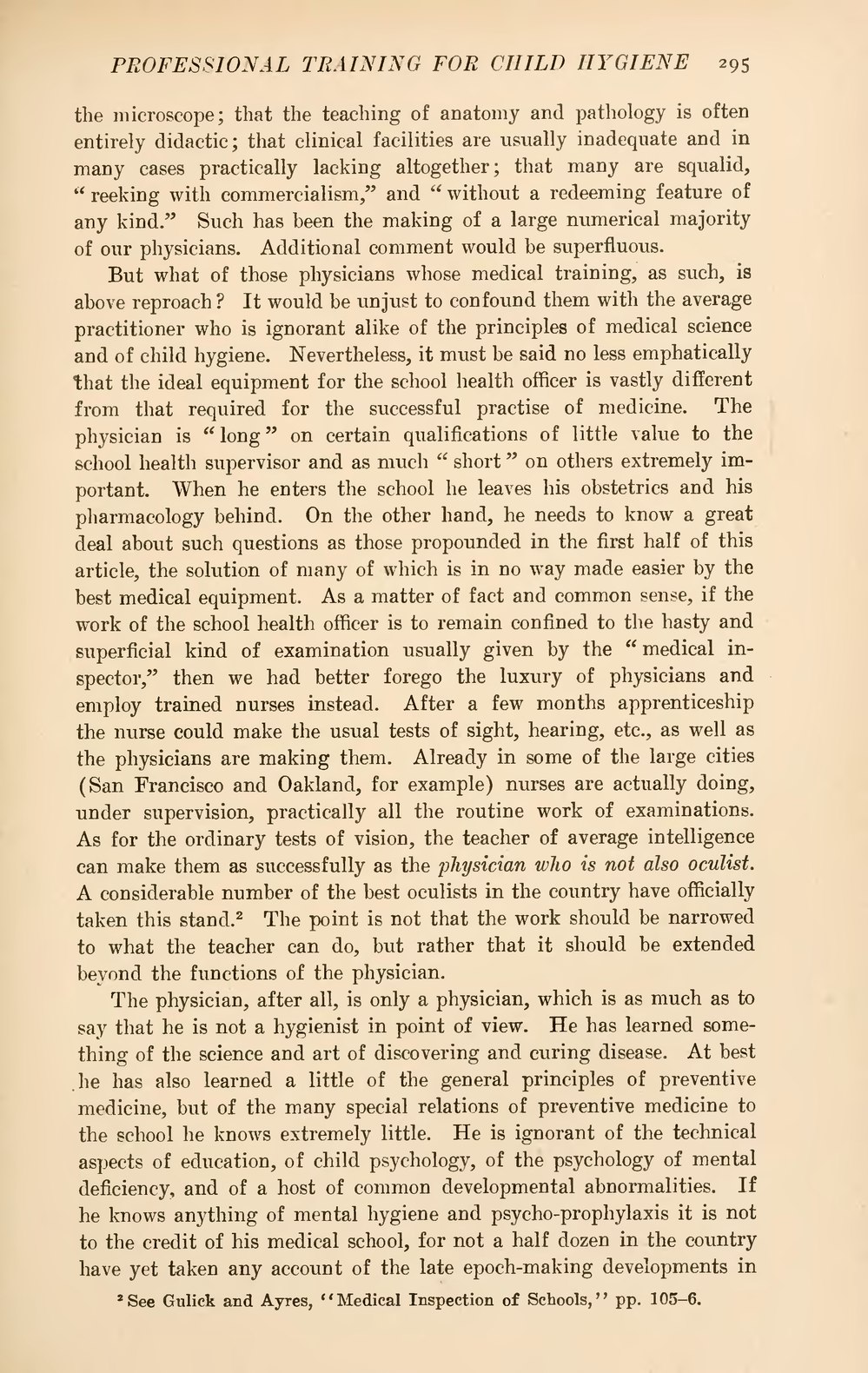the microscope; that the teaching of anatomy and pathology is often entirely didactic; that clinical facilities are usually inadequate and in many cases practically lacking altogether; that many are squalid, "reeking with commercialism," and "without a redeeming feature of any kind." Such has been the making of a large numerical majority of our physicians. Additional comment would be superfluous.
But what of those physicians whose medical training, as such, is above reproach? It would be unjust to confound them with the average practitioner who is ignorant alike of the principles of medical science and of child hygiene. Nevertheless, it must be said no less emphatically that the ideal equipment for the school health officer is vastly different from that required for the successful practise of medicine. The physician is "long" on certain qualifications of little value to the school health supervisor and as much "short" on others extremely important. When he enters the school he leaves his obstetrics and his pharmacology behind. On the other hand, he needs to know a great deal about such questions as those propounded in the first half of this article, the solution of many of which is in no way made easier by the best medical equipment. As a matter of fact and common sense, if the work of the school health officer is to remain confined to the hasty and superficial kind of examination usually given by the "medical inspector," then we had better forego the luxury of physicians and employ trained nurses instead. After a few months apprenticeship the nurse could make the usual tests of sight, hearing, etc., as well as the physicians are making them. Already in some of the large cities (San Francisco and Oakland, for example) nurses are actually doing, under supervision, practically all the routine work of examinations. As for the ordinary tests of vision, the teacher of average intelligence can make them as successfully as the physician who is not also oculist. A considerable number of the best oculists in the country have officially taken this stand.[1] The point is not that the work should be narrowed to what the teacher can do, but rather that it should be extended beyond the functions of the physician.
The physician, after all, is only a physician, which is as much as to say that he is not a hygienist in point of view. He has learned something of the science and art of discovering and curing disease. At best he has also learned a little of the general principles of preventive medicine, but of the many special relations of preventive medicine to the school he knows extremely little. He is ignorant of the technical aspects of education, of child psychology, of the psychology of mental deficiency, and of a host of common developmental abnormalities. If he knows anything of mental hygiene and psycho-prophylaxis it is not to the credit of his medical school, for not a half dozen in the country have yet taken any account of the late epoch-making developments in
- ↑ See Gulick and Ayres, "Medical Inspection of Schools," pp. 105-6.
